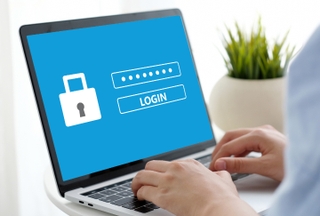How to create a strong password to stay safe online
20 August 2020

Keeping yourself protected online is a priority for most. Especially when it comes to passwords.
In fact, 90% of internet users are worried about their password being hacked. And while it’s impossible to completely fool-proof yourself against password hacking, there are a few things you can do to mitigate the risks.
Having a strong password will make it harder for other people to gain access to your internet accounts. But how do you create one that safeguards you online? In this article, we’ll cover everything you need to know about creating a strong password and staying safe online.
What makes a good password?
Password length is one of the most important aspects to consider. Essentially, the longer the password, the harder it is to crack. That’s why you should aim to make it reasonably lengthy, using a mix of letters, numbers and symbols that help create a genuinely unique password.
These combinations create more work for those with a vested interest in hacking passwords. Long passwords with combinations are associated with an increase in password entropy. This is the measure of how much uncertainty there is in a password key.
How long should your password be?
Most recommendations suggest that passwords should have a minimum of 12 characters, with 15 being the ideal number. Randomness is still essential for making a robust password, but you should be thinking about the length before anything else.
Many believe that a long password comprising only lower-case letters is actually more reliable than a shorter one with combinations. Ultimately, your first port of call for a high-quality password should be its length.
How to create a strong and safe password
Avoid using passwords that have obvious personal meaning, such as family names, birthdays and special occasions. For example, Mum65 or 123456 is a surefire way to leave your accounts exposed to potential hacking.
Having passwords that you can relate to might be easier to remember, but they’re also easier to hack. If you’re going to create a password based on something memorable, make sure it’s something that’s personal to you and that no one else would know.
Should password styles change for different logins?
The average person has between 70 and 80 passwords. Whether you’re creating a password for your email or changing it for your broadband network, the way you go about creating them should be similar: long passwords with a combination of letters, numbers and symbols.
How to remember and manage your passwords
Trying to remember long passwords with combinations is one of the drawbacks to creating stronger passwords. Fortunately, password management apps take the stress out of remembering complex passwords.
Software such as LastPass and 1Password store all of your passwords in a secure, encrypted vault. This means you only need one master password that unlocks all of the others. It allows you to create lots of secure passwords while only needing to remember one.
Using Google Chrome for your internet browser can help further secure your passwords. Google Chrome security can generate strong passwords that are long and use a combination of different letters, characters and numbers.
How often should you change your password?
Creating long passwords that use combinations is a good start, but many people wonder if they should frequently change their passwords. Initially, the general consensus was that you should change your password every 30, 60 or 90 days.
However, that advice has now changed, with the National Institute of Standards and Technology in the US recommending against frequent password changes. Internet users often have lots of accounts, and asking for regular changes is unrealistic.
That doesn’t mean you shouldn’t change your password at all, however. You should consider changing your password if:
- A service discloses a security incident
- You haven’t changed for more than 12 months
- There’s evidence of unauthorised access to your account
- You logged into the account on a public computer
- Malware comprises your device
- You shared an account with someone who no longer uses your login
The key is to be sensible with your passwords, creating high-quality combinations that are hard to break and enhance your online security.